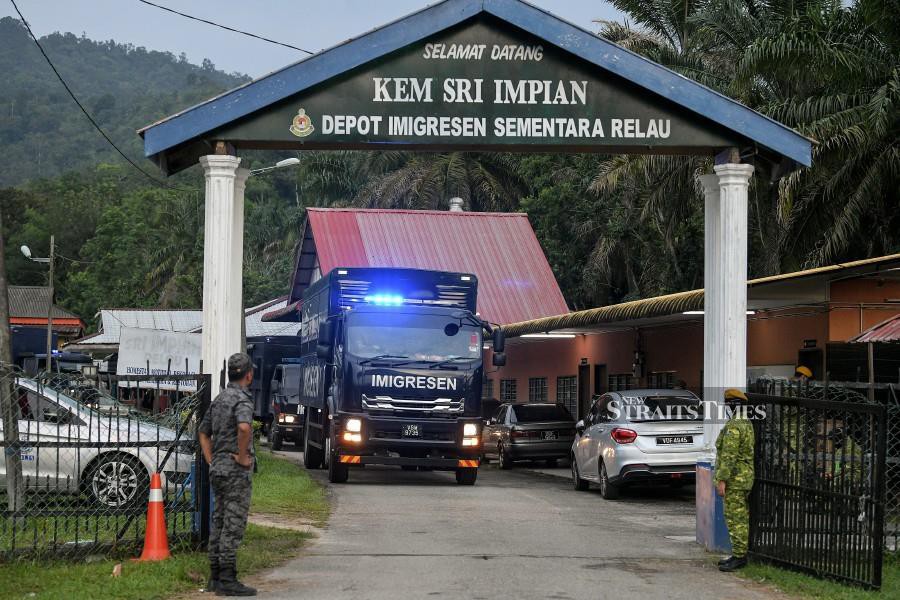 This April 20, 2022, pic shows Immigration Department's trucks seen leaving an Immigration detention depot in Relau, Kedah. - BERNAMA PIC
This April 20, 2022, pic shows Immigration Department's trucks seen leaving an Immigration detention depot in Relau, Kedah. - BERNAMA PICIt is not easy managing refugees. Malaysia, a small nation of limited resources, knows this only too well. But Malaysia can do better.
Like being more humane. The Wednesday escape by 528 Rohingya refugees from the Immigration detention depot in Sungai Bakap, Kedah, is itself very telling. No words need be spoken.
Their tale is that of tears of ones who have seen their days in the crowded detention depot grow into weeks, months and more.
Let's ask this, as Ab Jalil Backer of Angkatan Karyawan Nasional does in Sinar Ahad: Would someone who had left his life's possessions behind, escaping murder and massacre at home, stay cooped up in a crowded depot for who knows how long? Granted, we are a nation of limited resources. But being humane to the refugees doesn't mean we are robbing Peter to pay Paul. There is no zero-sum game here. Have a heart.
And here is how to do it. Firstly, alter our way of seeing. We must discard our old pair of spectacles. See, we are rushing to cancel the United Nations High Commissioner for Refugees (UNHCR) cards of the refugees. We shouldn't head that way. They are not criminals. Yes, they escaped, but who wouldn't? Besides, anything done in the heat of the moment is bound to be wrong. Think human beings.
The Rohingya are not flooding Malaysia because our country is better than Myanmar. No. However blessed Malaysia is — and it is very blessed — Myanmar is home. They are running away from genocide and a genocidal regime there. Who won't?
If things were as normal there as it is in Malaysia, they wouldn't come here. This is a fact we must learn to accept. And if Myanmar becomes hospitable to the Rohingya once again, they would surely rush home. As they say, home is where the heart is.
Secondly, the refugees are a bank of human capital waiting to be tapped. Do not waste them away. But firstly we must nurture the human capital by giving them learning opportunities. As it is, they are left to teach themselves. Successful autodidacts are few and far between.
The lucky ones are taught by non-governmental organisations, but these have limited resources to make learning last. And not all of them can teach living skills. Malaysia must learn how to be inclusive and allow them to attend schools as Malaysians do. This doesn't mean we are promising them a permanent stay here. No, this is a wrong way of seeing.
Instead, we are preparing them with learning and living skills for their future in their adopted homes. Or better still, for their journey home when things become normal. Skilled refugees have a better prospect of being resettled in third countries.
Thirdly, since we are always short of foreign workers, why not tap the resources of the refugees? According to the latest UNHCR data, there are 156,110 Myanmar refugees, including Rohingya, in the country. Minus some 50,000, who are children below 18, the labour force is still a good 100,000. With some training, they can be maids, plantation and factory workers.
Malaysia needn't trouble itself spending time and energy negotiating with governments for foreign workers when we have plenty in the country.
Finally, by being humane to refugees, Malaysia would send a strong message to Myanmar, a country with genocidal tendencies, on how to treat fellow human beings.

No comments:
Post a Comment